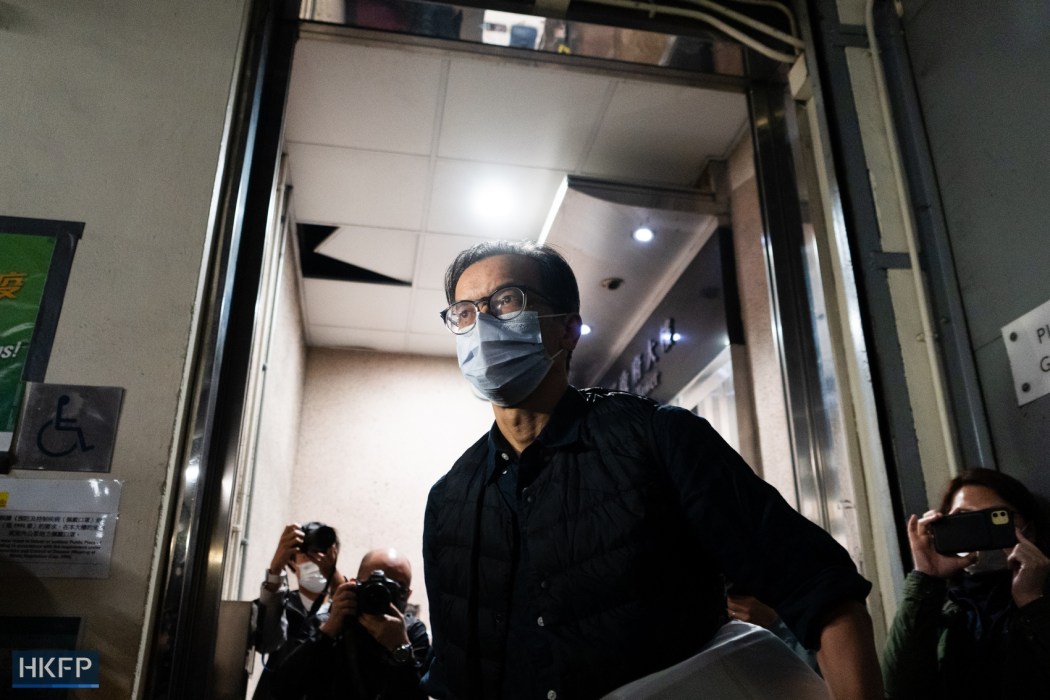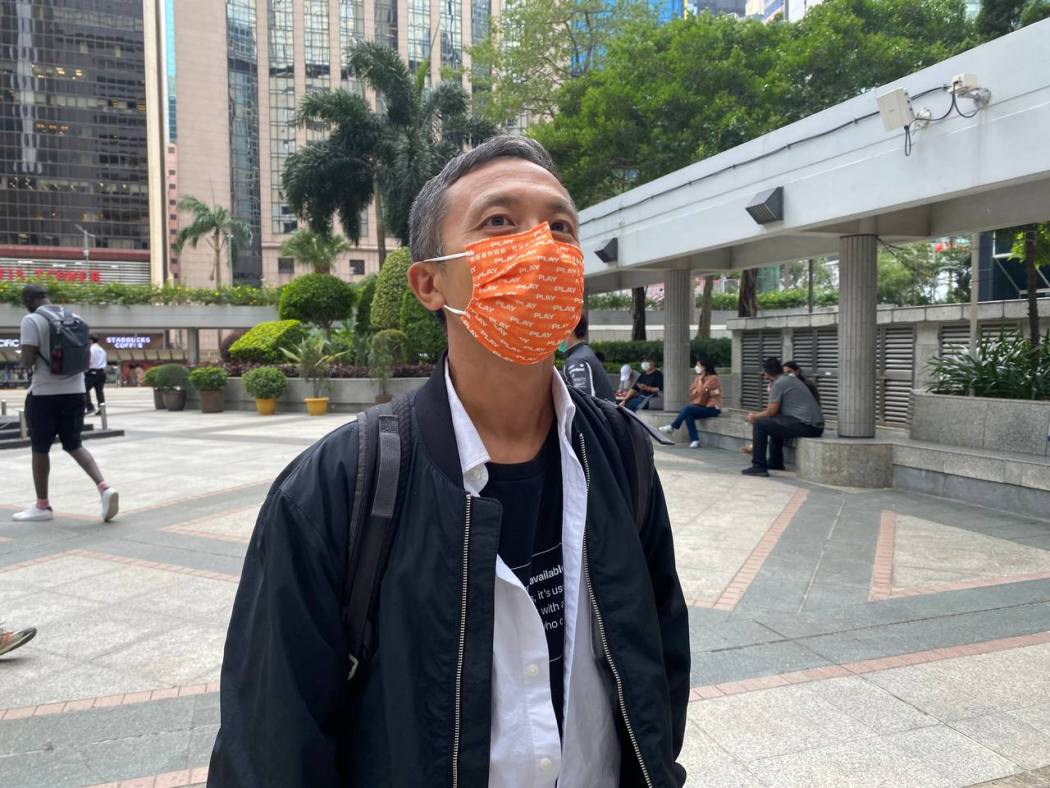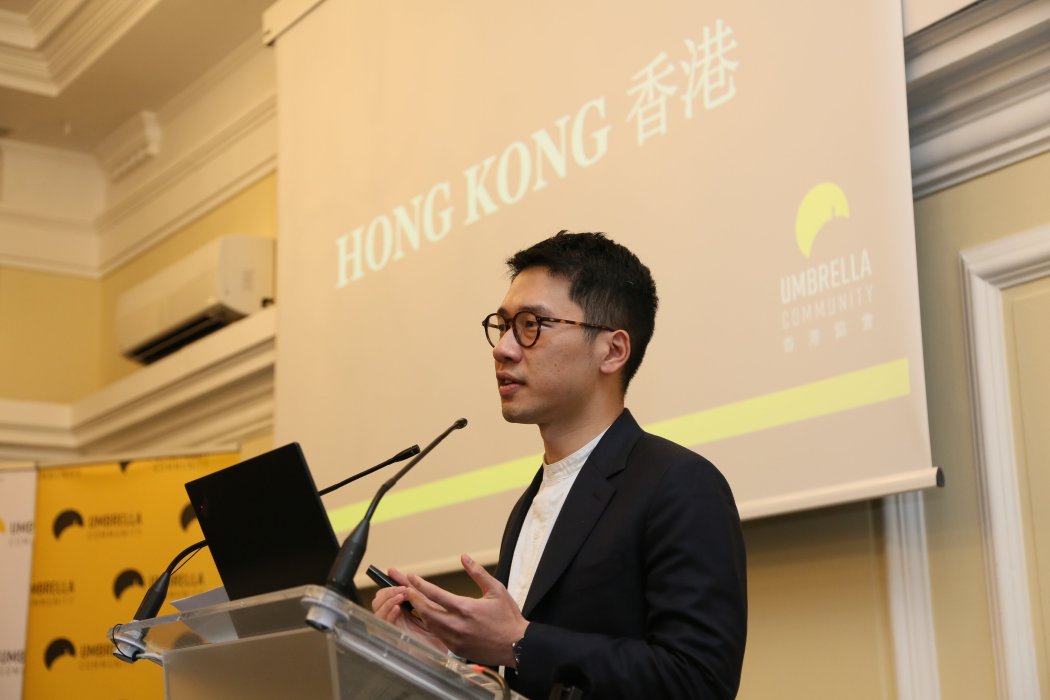The sedition trial against defunct Hong Kong news outlet Stand News, which began last October and was supposed to last 20 days, will continue until the end of March, the court has heard.

Stand News’ former editor-in-chief Chung Pui-kuen, former acting chief editor Patrick Lam and the outlet’s parent company have been charged with conspiring to publish 17 allegedly “seditious” articles between July 2020 and December 2021.
After questioning Chung for weeks, lead prosecutor Laura Ng told the District Court on Friday that she aimed to finish questioning the former editor within four working days. The prosecution planned to close the case before Judge Kwok Wai-kin became unavailable in April, Ng said.
However, Ng introduced four articles to the court on Thursday. They were all commentaries on the national security law that were published within a day of the law’s implementation in 2020.

In June 2020, Beijing inserted national security legislation directly into Hong Kong’s mini-constitution – bypassing the local legislature – following a year of pro-democracy protests and unrest. It criminalised subversion, secession, collusion with foreign forces and terrorist acts, which were broadly defined to include disruption to transport and other infrastructure. The move gave police sweeping new powers, alarming democrats, civil society groups and trade partners, as such laws have been used broadly to silence and punish dissidents in China. However, the authorities say it has restored stability and peace to the city.
On Friday, Ng submitted another news write-up about activities in Taiwan supporting a protest held in Hong Kong on June 12, 2019.
Defence counsel Audrey Eu objected to Ng’s submission, comparing it to a magician’s trick. “Is it because this year is the year of rabbit? Is that why the prosecution keeps pulling out new evidence, as if they are magicians pulling rabbits out of their hat?”

Judge Kwok allowed Ng to submit the additional evidence, saying that Chung’s intention to commit sedition was a deciding factor in the trial.
Allan Au’s op-ed
Two of the four newly submitted commentaries were written by veteran journalist Allan Au, who was sitting in the public gallery of Wednesday’s hearing. He was arrested last April for allegedly conspiring to publish seditious materials but saw no charges brought against him.
Ng read out a section from one of Au’s op-eds: “From the beginning to the end, the national security law has had nothing to do with the law. You are the ones writing the law, you are the ones passing the law, you are the ones enforcing the law, you are the ones prosecuting people with the law, you are the ones appointing judges.”
“The ‘you’ Au was referring to is the Chinese Communist Party, right?” Ng asked. Chung disagreed, and said Au was referring to “people in power” in general.
Ng said it was clear that Au was talking about the Chinese Communist Party. “This article is going to incite hatred of the central government, as it suggests the central government has imposed a ‘wicked law’ on Hongkongers,” Ng added.
She also cited another of Au’s quote, saying that the national security law could “kill like a AK47.”

Chung said what he saw in the commentary was an intellectual expressing his worries and grief over a law that would have considerable repercussions on civil society. “Kill like a AK47” was only a figure of speech, he added.
In another article, an literary blogger called the city “Kafkaesque,” saying more ridiculous reforms would take place after the implementation of the national security law, including the introduction of secret police, secret trials and secret crimes.
Ng said those claims were groundless since “secret police are not a reality, crimes are explicitly defined in our laws, and the idea of dying in prison is purely fictional.”
Chung said it is common to cite literature in opinion articles, and the blogger used novelist Franz Kafka’s work as a metaphor to express his concerns about the national security law.

“But this article could incite hatred towards the national security law, do you agree?” Ng asked.
“No,” Chung replied.
Hong Kong Independent Bookstore
Ng then asked Chung why Stand News featured a segment labelled “Hong Kong Independent Bookstores” – the Chinese characters of which were the same as “Hong Kong Independence Bookstore.”
“Was there any special meaning in it?” Ng asked.
Chung paused for a moment before telling her that the term referred to bookshops which were not part of a franchise. He said that Stand News had invited independent bookstores to recommend books to its readers.

“Oh…maybe I saw ‘Hong Kong Independence’ and thought too much into it,” Ng said, before moving on to the next article.
Nathan Law’s op-ed
Ng moved on to question Chung over a commentary on national security law by self-exiled former lawmaker Nathan Law – one of the 17 allegedly “seditious” articles – on Friday afternoon
The 17 allegedly seditious Stand News articles – click to view
- Profile of Gwyneth Ho, a candidate in the 2020 legislative primaries held by the pro-democracy camp, published on July 7, 2020.
- Profile of Owen Chow, a candidate in the 2020 legislative primaries held by the pro-democracy camp, published on July 27, 2020.
- Profile of Fergus Leung, a candidate in the 2020 legislative primaries held by the pro-democracy camp, published on August 12, 2020.
- Commentary by Chan Pui-man, Apple Daily’s former associate publisher, criticising speech crimes, published on September 12, 2020.
- Commentary by Nathan Law, a former lawmaker now in self-exile, on “how to resist” under the national security law, published on September 20, 2020.
- Profile of Law on his “battlefront” of calling for sanctions on the Hong Kong government in the UK, published on December 9, 2020.
- Commentary by Law on “resilience in a chaotic world,” published on December 13, 2020.
- Feature interview with Ted Hui, a former lawmaker in self-exile, after he fled Hong Kong with his family, published on December 14, 2020.
- Feature interview with Baggio Leung, a former lawmaker in self-exile, as he called for sanctions on Hong Kong and a “lifeboat scheme for Hongkongers,” published on December 15, 2020.
- Commentary by Sunny Cheung, an activist in self-exile, responding to being wanted by the Hong Kong government, published on December 28, 2020.
- Commentary by Allan Au, a veteran journalist, on “new words in 2020,” which included “national security,” “disqualified” and “in exile,” published on December 29, 2020.
- Commentary by Au calling a national security trial a show, published on February 3, 2021.
- Commentary by Law paralleling the mass arrests of candidates in the democrats’ primaries to mass arrests during Taiwan’s white terror period, published on March 2, 2021.
- Commentary by Au accusing the authorities of “lawfare” in usage of the sedition law, published on June 1, 2021.
- Commentary by Au describing Hong Kong as a disaster scene after the implementation of national security law, published on June 22, 2021.
- Feature about CUHK graduates’ march on campus to mourn the second anniversary of the police-student clash in 2019, published on November 11, 2021.
- Report on Chow Hang-tung’s response to being honoured with the Prominent Chinese Democracy Activist award, published on December 5, 2021.
In the op-ed, Law wrote that prior to the launch of the security law, schools faced criticism for trying to quash freedom of speech by prohibiting students from discussing “liberate Hong Kong” – a slogan linked to the protests and unrest of 2019.
“The totalitarian government is trying to destroy all potential resistance,” Law wrote.
Ng asked Chung if he thought secondary school studentswere capable of discussing Hong Kong independence. Chung said Law was focusing on the importance of freedom of speech, instead of students’ capacity to think.
The prosecutor then asked if “potential resistance” referred to resistance of the Chinese Communist Party. “No, it’s resistance against suppression of freedom,” Chung said.

Ng asked Chung if he agreed the article ignited dissatisfaction towards the national security law and the central government. Chung said he did not agree with that statement.
At the end of Friday’s hearing, Eu asked the prosecutor to inform the defendants in advance before introducing articles to the court in future. Ng suggested Chung read through the almost 600 pieces which the prosecution had previously submitted to the court.
The trial will continue on March 7.
Sedition law
The anti-sedition legislation, which was last amended in the 1970s when Hong Kong was still under British colonial rule, falls under the city’s Crimes Ordinance. It is separate from the Beijing-imposed national security law, and outlaws incitement to violence, disaffection and other offences against the authorities.
Non-profit digital news outlet Stand News ceased operations and deleted its website in December 2021 after its newsroom was raided by over 200 national security police officers. Seven people connected to the independent outlet were arrested on suspicion of conspiring to “publish seditious publications.” However, only ex-chief editor Chung Pui-kuen, acting chief editor Patrick Lam and parent company Best Pencil (Hong Kong) Limited were charged under the colonial-era law.
Advocacy groups, the UN, and western countries criticised the arrests as a sign of declining media freedoms, whilst now-Chief Executive John Lee condemned “bad apples” who “polluted” press freedom following the raids. The trial began in October 2022 with the court considering 17 allegedly seditious articles, including interviews, profiles, hard news reporting and opinion pieces. Sedition is not covered by the Beijing-imposed security law and carries a maximum penalty of two years behind bars.
Support HKFP | Policies & Ethics | Error/typo? | Contact Us | Newsletter | Transparency & Annual Report | Apps
Help safeguard press freedom & keep HKFP free for all readers by supporting our team
























